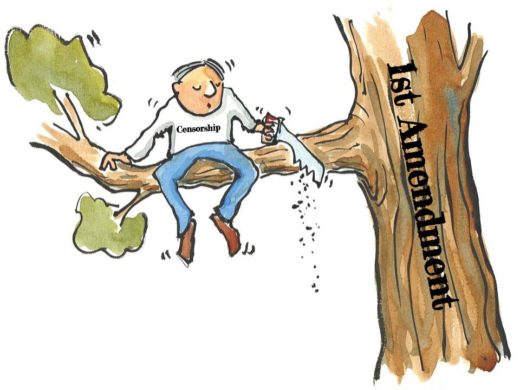
By Bethany Pham, Staff Writer
Two weeks ago, a judge overturned two San Francisco students’ high school suspensions for following and liking an explicitly racist Instagram account.
U.S. District Judge James Donato justified his decision to overturn their suspensions because one student only followed the account while the other made one comment saying that the account displayed “racism solely directed at black people” with a laughing face emoji. These actions were not deemed as disruptive as the actions of the other five suspended students.
This overturning occurred after the judge’s rejection that the Albany Unified School District violated the students’ First Amendment rights because the Instagram account’s offensive posts were made off campus on a private account. Because the account featured images of students and school faculty, there was huge potential for significant disruption at school.
The student who made the account was suspended and later expelled from the school for producing the disrespectful content. It stirred huge controversy: some people questioned if the First Amendment protected everyone’s right to express themselves including groups similar to the Ku Klux Klan.
Upon discovering the account, school officials brought in mental health counselors to help any students in need while also contacting police over the risk for danger as the Instagram account made numerous references to lynching and the domestic hate group the Ku Klux Klan.
“These cases establish that students have the right to be free of online posts that denigrate their race, ethnicity or physical appearance, or threaten violence,” Donato said. “They have an equivalent right to enjoy an education in a civil, secure and safe school environment.”
Lawyers of the five suspended students countered, “The judge took an opinion that many of us do in the older generations, assuming that a ‘like’ on its face is just that, ‘I like it, I approve of it.’ ” They argued that likes on social media were not so black-and-white.





